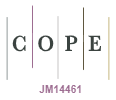Covering cyberbullying in schools inspired by the principles and methodologies of social pedagogy
DOI:
https://doi.org/10.5585/eccos.n48.11577Keywords:
Cyberbullying. Social Pedagogy. Virtual Violence.Abstract
The article aims to understand the dimensions of virtual violence in the phenomenon of cyberbullying, a thesis topic completed by the Doctorate in Education in the postgraduate program of the Catholic University of Brasilia. Among the problems researched, the role of the teacher in the daily deal with students who suffered and / or practiced virtual violence in Palmas / TO schools, offensive messages of texts, videos and audios, and noncompliance with Law no. 13.185 / 2015, in force in Brazil since June 2016 (BRAZIL, 2015). The symbolic interactionism and functionalism was the theoretical model used in the perspectives of the authors as Becker (2008), in the work "Outsiders" and Goffman (2013), in "Stigma", for the analysis of the data generated. The methodology was based on qualitative research, which allowed the flexibility of the entry techniques such as the application of interviews, indirect observation and documentary analysis (DEMO, 2011). The research documents were submitted to Plataforma Brasil, on 04/17/2017, and a Certificate for Presentation of Ethical Appreciation (CAAE) was issued. 69064317.0.0000.0029, approved on July 17, 2017 by the UCB Ethics Committee (CE), opinion no. 2,175,797. Preliminary results indicate that schools are not aware of legal programs to combat systematic bullying through virtual violence. On the other hand, it was perceived the importance of a teacher engaged in the classroom, committed to teaching-learning, but above all involved in building a culture of peace, through the use of methodologies and principles inspired by Social Pedagogy.Downloads
References
ADAMI, Ana. Memes. Disponível em: <https://www.infoescola.com/comunicacao/memes/>. Acesso em: 7 nov. 2018.
ARAÚJO, Sônia Maria dos Santos. Cyberbullying: palavra e imagens que trazem sofrimento. 1. ed. Palmas: Nagô Editora, 2017.
BAUMAN, Zygmunt. Vidas desperdiçadas. Trad. Carlos Alberto Medeiros. Rio de Janeiro: Zahar, 2005.
BECKER, Howard Saul. Outsiders: estudos de sociologia do desvio. Tradução Maria Luiza X. de Borges; revisão técnica Karina Kuschnir. 1. ed. Rio de Janeiro: Jorge Zahar, 2008.
BERNTSSON, Elías; VALLEJO, Sabrina. Cómo superar el bullying y sus secuelas em 2 etapas transformadoras. (Ebook). Publicado por AumenandoMiAutestima.com. 2015.
BLAYA, Catherine. Violências e maus-tratos em meio escolar. Lisboa, Portugal: Instituto Piaget, 2006.
BRASIL. Lei n°. 13.185 de 6 de novembro de 2015.
Institui o Programa de Combate à Intimidação Sistemática (Bullying). Disponível em: <http://www.planalto.gov.br/ccivil_03/_Ato2015-2018/2015/Lei/L13185.htm>. Acesso em: 10 set. 2018.
CALIMAN, G. Pedagogia social, relações humanas e educação. In: MAFRA, J. F.; BATISTA, J.C.F.; BAPTISTA, A.M.H. Educação básica: concepções e práticas. São Paulo: BT Acadêmica. 2015. p. 187-203.
DAWKINS, Richard. O gene egoísta. Tradução Rubino Rejane. São Paulo: Companhia das Letras, 1989.
DEMO, Pedro. Metodologia do conhecimento científico. 1. ed. 9. reimp. São Paulo: Atlas, 2011.
FREIRE, Paulo. Pedagogia da autonomia: saberes necessários à prática educativa. 17. ed. São Paulo: Paz e Terra, 1996.
GIDDENS, Anthony. Modernidade e Identidade. Tradução, Plínio Dentzien. Rio de Janeiro: Jorge Zahar, 2002.
GOFFMAN, Irving. Estigma: notas sobre a manipulação da identidade deteriorada. Tradução de Márcia Bandeira de Mello Leite Nunes. 4. ed. Rio de Janeiro: LTC, 2013.
HERNÁNDEZ SAMPIERI, R.; FERNÁNDEZ COLLADO, C.; BAPTISTA LUCIO, P. Metodologia de pesquisa. 5. ed. Porto Alegre: Penso, 2013.
LI, Quing. Cyberbullying in Schools: A Research of Gender Differences.
School Psychology International. 2006. v. 27. Issue 2. pp. 157-170. Disponível em:<http://spi.sagepub.com/content/27/2/157>. Acesso em: 19 set. 2018.
LIMA, Ana Maria de Albuquerque. Cyberbullying e outros riscos na internet: despertando a atenção de pais e professores. Rio de Janeiro: Walk Editora, 2011.
LISBOA, Carolina Saraiva de Macedo e al. Mitos e fatos sobre o Bullying. (in) LISBOA, Carolina Saraiva de Macedo; WENDT, Guilherme Welter; PUREZA, Juliana da Rosa. Mitos e fatos sobre o bullying: orientações para pais e profissionais. Novo Hamburgo: Sinopsys, 2014, p. 15-27.
OLWEUS, Dans. Bullying at scholl. What we know and what we can do. London: Blackwell, 1993.
_______.Cyberbullying: Na overrated phenomenon? In: European Journal of Developmental Psychology. v. 9, Issue 5. pp. 20-568, 2012. Disponível em: <https://www.researchgate.net/profile/Dan_Olweus/publication/254222937_Cyberbullying_An_overrated_phenomenon/links/58527d8508aef7d030a4e9dc.pdf>. Acesso em: 20 set. 2018.
PIERONI, Vittorio; FERMINO, Antonia; CALIMAN, Geraldo. Pedagogia da alteridade: para viajar a Cosmópolis. Brasília: Liber Livro, 2014.
RIBEIRO, Neide Aparecida. Reabilitação criminal: o papel da educação social em processos de violência e exclusão. Revista Interacções. v. 11. n. 38. 2015. pp. 80-101. Disponível em:<http://revistas.rcaap.pt/interaccoes/article/view/8493>. Acesso em: 16 set.. 2018.
_______. Formação de professores: o enfrentamento do cyberbullying nas escolas do Distrito Federal. Anais do II INTERFOR, VII ENFORSUP. Palmas, Tocantins, Brasil, 12 a 15 de setembro de 2017, UFT. Disponível em: <https://docs.uft.edu.br/share/proxy/alfresconoauth/api/internal/shared/node/3iMMPL_wRISw597jz_UEw/content/Anais%20(II%20Interfor%20e%20VII%20Enforsup%202017).pdf>. Acesso em: 7 set. 2018.
SANTAELLA, Lúcia. Linguagens líquidas na era da mobilidade. São Paulo: Paulus, 2007.
SCOCUGLIA, Afonso Celso, et al. Pedagogia social. Org. Roberto da Silva; João Clemente de Souza Neto; Rogério Moura. 2 . ed. revisada. São Paulo: Expressão e Arte Editora, 2011.
SEIXAS, Sónia; FERNANDES, Luís; DE MORAIS, Tito. CYBERBULLYING: um guia para pais e educadores. Lisboa, Portugal: Plátano Editora, 2016.
SHARIFF, Shahenn. Cyberbullying: questões e soluções para a escola, a sala de aula e a família. Tradução: Joice Elias Costa; revisão técnica: Cleo Fante. Porto Alegre: ArtMed, 2011.
Silva, R. et al. Áreas prioritárias para atuação da pedagogia social no Brasil. 3. ed. In R. Silva et al. (Org.). Pedagogia Social. São Paulo: Expressão & Arte Editora, 2011.
SLONJE, Robert; SMITH K. Peter. Cyberbullying: Another main type of bullying? Personality and Social Sciences. Scandinavian Journal of Psychology, 2008, 49, pp. 147–154. Disponível em: <https://www.ncbi.nlm.nih.gov/pubmed/18352984>. Acesso em: 20 set. 2018.
WENDT, Guilherme Welter; WEBER, João Luís Almeida. Discutindo agressão e vitimização eletrônica. Mitos e fatos sobre o bullying: orientações para pais e professores. Org. por Carolina Saraiva de Macedo Lisboa, Guilherme Weldt e Juliana da Rosa Pureza. Novo Hamburgo: Sinopsys, 2014.
Downloads
Published
How to Cite
Issue
Section
License
Copyright (c) 2019 EccoS – Revista Científica

This work is licensed under a Creative Commons Attribution-NonCommercial-ShareAlike 4.0 International License.
- Abstract 853
- PDF (Português (Brasil)) 520






